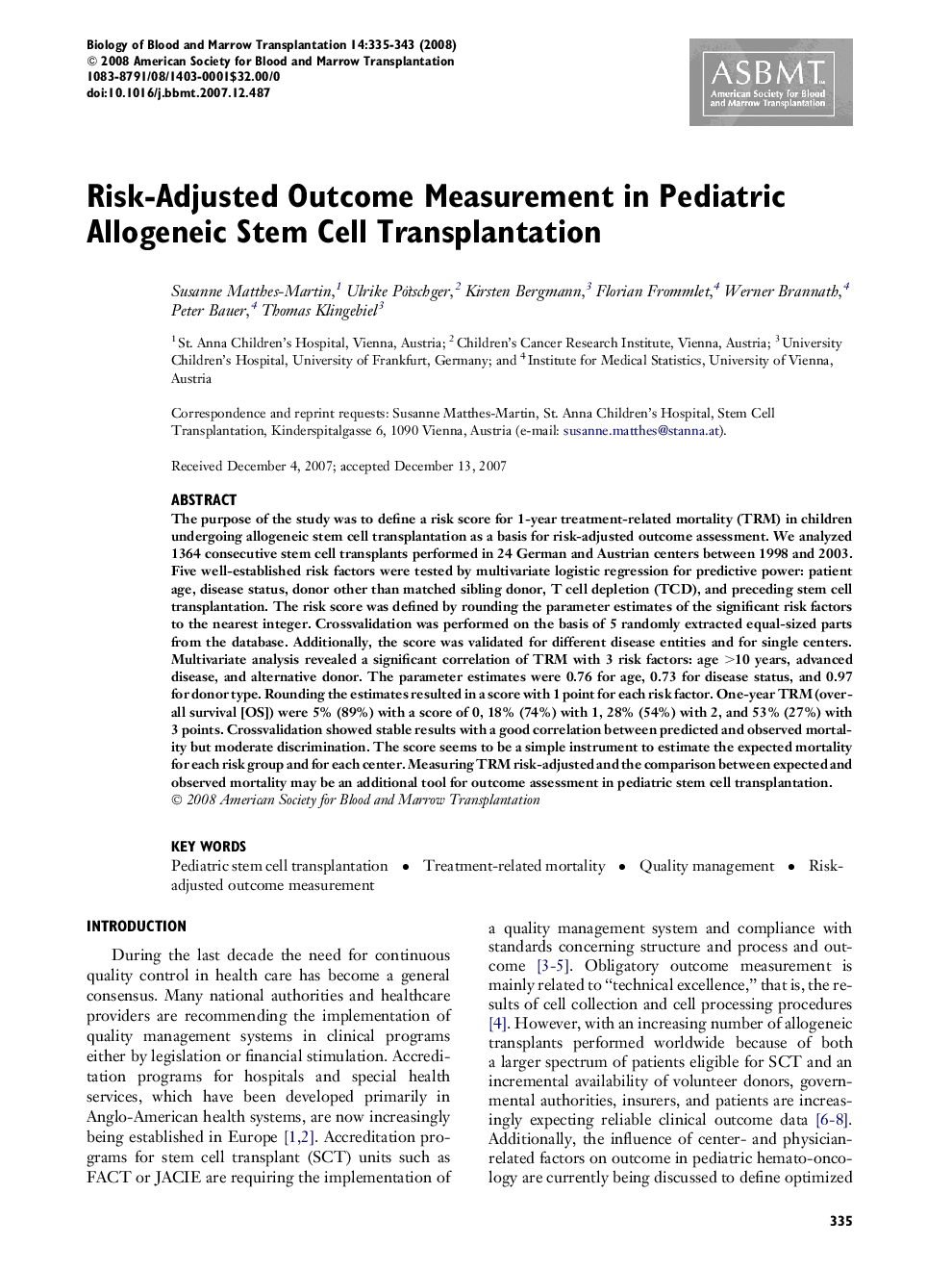| Article ID | Journal | Published Year | Pages | File Type |
|---|---|---|---|---|
| 2104682 | Biology of Blood and Marrow Transplantation | 2008 | 9 Pages |
The purpose of the study was to define a risk score for 1-year treatment-related mortality (TRM) in children undergoing allogeneic stem cell transplantation as a basis for risk-adjusted outcome assessment. We analyzed 1364 consecutive stem cell transplants performed in 24 German and Austrian centers between 1998 and 2003. Five well-established risk factors were tested by multivariate logistic regression for predictive power: patient age, disease status, donor other than matched sibling donor, T cell depletion (TCD), and preceding stem cell transplantation. The risk score was defined by rounding the parameter estimates of the significant risk factors to the nearest integer. Crossvalidation was performed on the basis of 5 randomly extracted equal-sized parts from the database. Additionally, the score was validated for different disease entities and for single centers. Multivariate analysis revealed a significant correlation of TRM with 3 risk factors: age >10 years, advanced disease, and alternative donor. The parameter estimates were 0.76 for age, 0.73 for disease status, and 0.97 for donor type. Rounding the estimates resulted in a score with 1 point for each risk factor. One-year TRM (overall survival [OS]) were 5% (89%) with a score of 0, 18% (74%) with 1, 28% (54%) with 2, and 53% (27%) with 3 points. Crossvalidation showed stable results with a good correlation between predicted and observed mortality but moderate discrimination. The score seems to be a simple instrument to estimate the expected mortality for each risk group and for each center. Measuring TRM risk-adjusted and the comparison between expected and observed mortality may be an additional tool for outcome assessment in pediatric stem cell transplantation.
